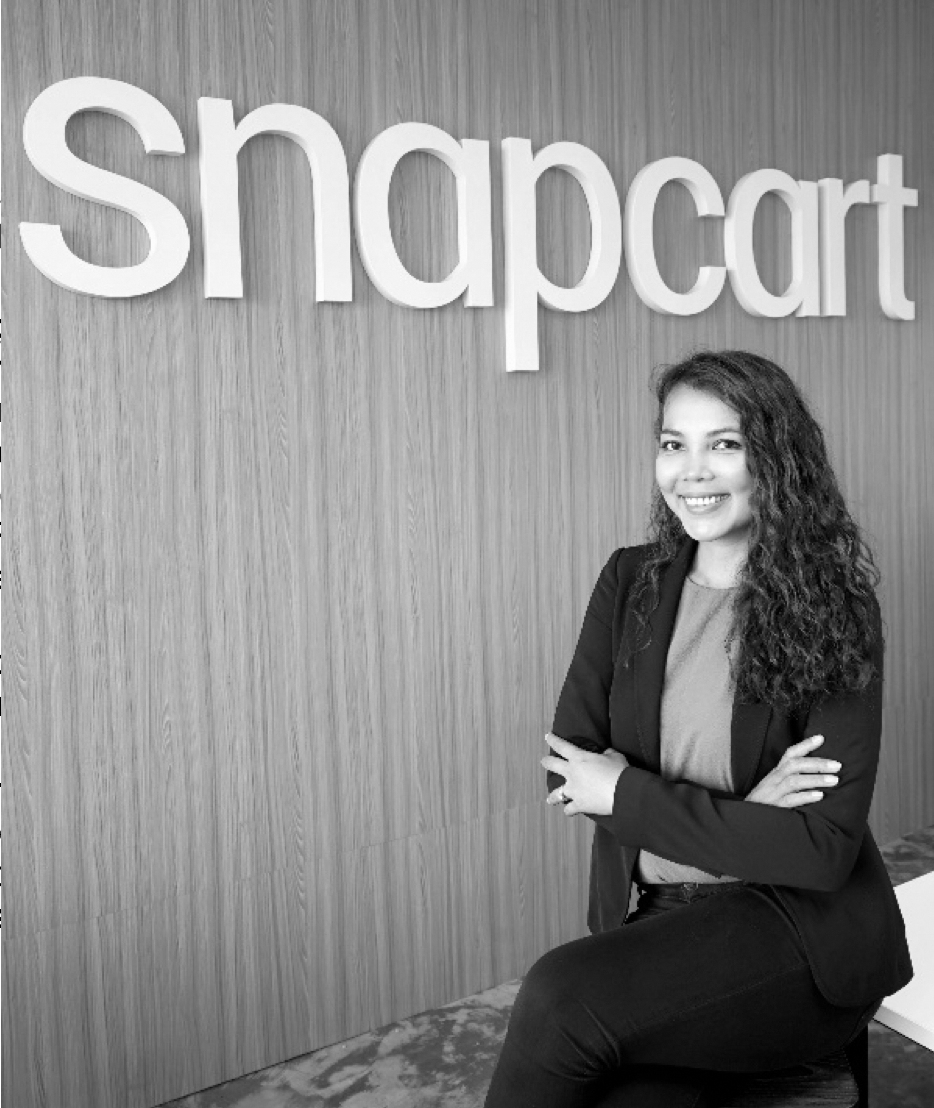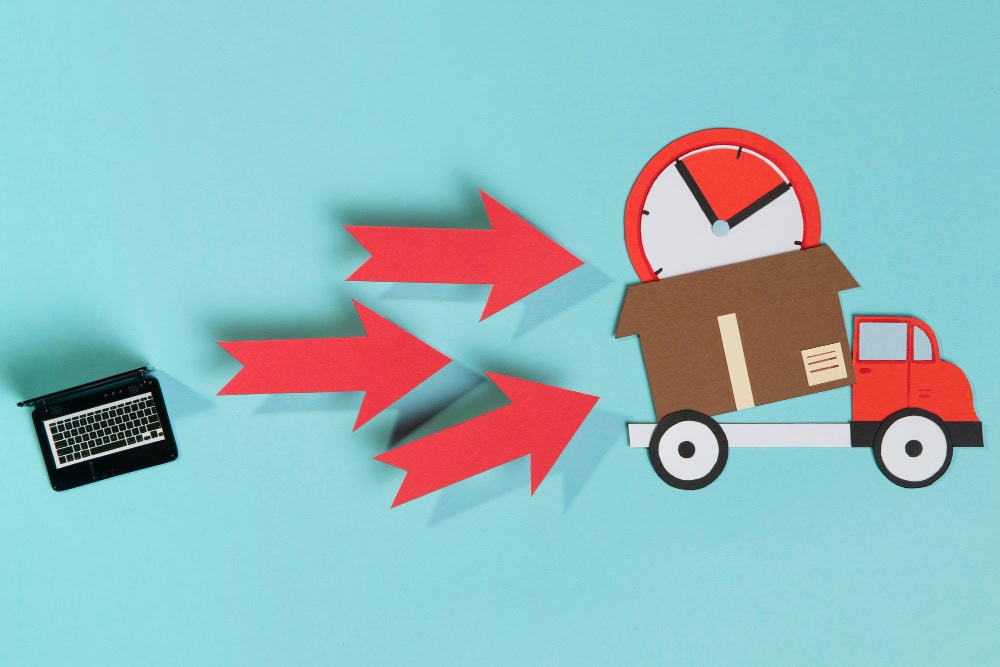This week, as part of the Inclusive Innovation series we announced this spring, we’re interviewing Teresa Condicion of Snapcart: a company that provides brands with valuable insights around offline shopping behavior. We chatted with the Co-Founder about building analytics company in Southeast Asia, the obstacles of being a woman in tech, and her secret weapons.

On her unlikely path to entrepreneurship
When Teresa and her Co-Founder started Snapcart, all the statistics were not in her favor — she had a long corporate career (17 years in P&G), female, Asian and just became a new mom. Since 2005, she had the aspirations to build an analytics company (it was part of her mission statement that she had been writing yearly since she was 25).
“I could never have taken that much risk earlier in my life,”
she says, “I was the bread winner of my family back in the Philippines. I needed to support my parents, send my siblings to college and help with my youngest sister’s medical bills.”
But even within P&G, she was always crazy about data analytics and innovation. Her favorite role was building new methods to measure ROI for the globe, in a more cost-efficient manner. Her last role was investigating the use of Big Data for research, which gave her the idea to crowdsource purchase data.
Unlikely entrepreneur or not, it all worked well in the end. The timing was great: mobile phone penetration was growing exponentially in Southeast Asia — earlier and their idea may not have worked. She met her co-founders who were working on the same idea, and despite very different backgrounds, they clicked right away. Additionally, all the time spent in P&G taught her new skills about leadership, building great organizations, and learning about analytical excellence, which is now benefiting her as she navigates this stage of scaling up Snapcart across multiple countries.
On rethinking marketing as we know it
Teresa grew very frustrated with the data she was receiving from the current providers. “They were slow, manually collected door to door via surveys, among few thousand respondents. I’d wait 3 months to receive my shopper tracking data and spend half the month reconciling it with other data sources that were showing different conclusions,” she says.
In 2014, she went on her (2nd) maternity leave and like most moms, she got stuck behind her mobile phone while breastfeeding and taking care of her baby for hours on end.
“And suddenly, once I had the chance to step back from the endless corporate travels and meetings, it became very obvious what I used to not have the bandwidth to notice before — marketing has changed in the most fundamental way,” she says. “It became personalized, and it was leveraging crowdsourced data.”
During those 6 months, she spent all of her time learning about the technology that powered it and took courses on coding and machine learning. While her original plan was to get back to P&G and propose the idea, it soon became obvious that this was something she had to build on her own. Luckily, she met her co-founders and the rest, as they say, is history.
On starting a business in Southeast Asia
Teresa is originally from the Philippines and now lives in Singapore. She works across Indonesia, Singapore, and Philippines (and now Brazil), where Snapcart now has several operations. “Each country has a varying level of startup ecosystem maturity, but in all of them, they are still relatively new, fast growing, and vibrant,” she explains.
In Singapore, the government is providing immense support for entrepreneurs and is opening the country for technology companies in the region to thrive and succeed. Indonesia and Brazil have produced quite a few unicorns, and the Philippines is starting to become more developed and exciting, too.
“But of course, we are still far from Silicon Valley and China. In my opinion, that can be good and bad. It means it is less fragmented, but it also means a lot of the support for the ecosystem is still just being built — from venture funds, to talents, to regulations that support startups.”
On being a woman in tech
“It’s actually good and bad,” she says “As a mom of two young kids, being a founder provided me with the flexibility to work from anywhere at any time, helping me achieve better work-life integration despite the long working hours. So, that is good.”
If there is one thing she noticed, there appears to be a bias about technical knowhow of a female:
“I find I constantly have to prove myself. I have had some situations where people get surprised about my data science skills.”
She recalls talking about machine learning and AI that they are building at Snapcart and she was told: ‘I hope you know what you’re talking about’.
“I have heard before that as a female, you get recognized for what you have demonstrated rather than what is your potential. And I totally can relate to that.” But the 17-years-of-P&G and 10-years-in analytics badge definitely helped her. Also, she says, the other good thing about being an older entrepreneur — you become wise enough to not be so affected by these obstacles — she’s too busy hustling.
On her secret weapons
There are 3 things:
- Diversity: “I have the most amazing co-founders who bring about so much diversity in our thinking. The 4 co-founders are all very capable in different ways. We come from different nationalities, have different expertise and backgrounds, different strengths and personalities. And being different while operating at a high level of trust means we are like a super human — no one human can possess all these skills.”
- Supportive networks: “I have the most supportive husband one can ask for. He is also an entrepreneur and can empathize and understand what I am going through. In fact, he’s the one who encouraged me to take the leap to become a founder. He is truly an equal partner in terms of parenting and household management, which gives me more flexibility than many women I know to pursue my goal as much as he pursues his.”
- Strong mentors and advisors: “And most importantly, I have had such great mentors and friends that I gained in all the years of my P&G career. It is after all the biggest producers of global leaders. Which means I get great advice at any point from some long-term mentors. It also means that majority of the clients we work with has some P&G alumni working there, which helps a lot in gaining credibility and confidence.”
**
As part of the Cannes Startup Academy, we’ve profiled each of the eight founders who were accepted into the week-long program. Stay tuned and follow us onTwitter as we continue to tell stories around Inclusive Innovation.
________________________________________________________________________________
Originally written by Liz David published in Medium.com on 17 July 2018 .





